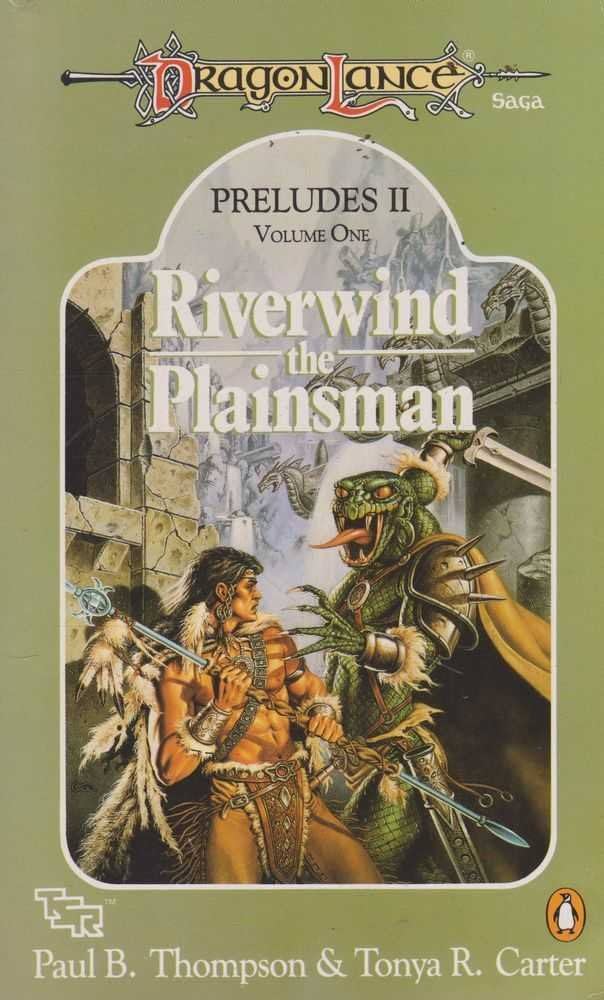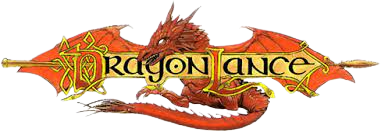Riverwind the Plainsman

Table of Contents
ToggleOverview
Riverwind the Plainsman is a deeply spiritual and emotionally charged tale from the Lost Histories series in the Dragonlance universe. Centered on the life of Riverwind, the stoic warrior of the Que-Shu and future Companion of the Lance, the novel reveals the trials and inner transformation that shaped his strength, silence, and faith.
The story traces his pilgrimage across Ansalon in search of truth, the divine, and a future for his people—even as it places him at odds with everything he once knew. Blending tribal heritage, mythic symbolism, and raw survival, it is a tale of humility, courage, and the burdens of leadership.
Main Character: Riverwind
A quiet, deeply spiritual warrior of the Que-Shu people, Riverwind is chosen by his chieftain to undergo a sacred quest to find the gods.
Devout, humble, and introspective, Riverwind seeks not glory but meaning, and struggles to balance faith with personal doubt.
His journey transforms him from a loyal son into a visionary leader who must reconcile tradition with newfound truth.
This novel explores the roots of his stoicism and the divine vision that later drives his actions during the War of the Lance.
Supporting Characters
Brightdawn – Riverwind’s childhood friend and love interest. She represents both what he stands to lose and the spiritual hope of his people.
Pathfinder – A wise and mystical wanderer who guides Riverwind through the wilderness and acts as both spiritual mentor and cryptic prophet.
High Chieftain – Riverwind’s father and spiritual leader of the Que-Shu, whose expectations weigh heavily on Riverwind’s shoulders.
Various Encounters – Riverwind meets clerics, heretics, false prophets, and travelers from across Krynn, each revealing a piece of the world and challenging his beliefs.
Setting
The novel traverses Krynn through Riverwind’s eyes, beginning in the Plains of Dust and expanding outward into deserts, mountains, forests, and forgotten ruins.
The world is harsh, sacred, and symbolic—each new land echoing Riverwind’s internal journey. From crumbling temples to deadly wilderness, the setting mirrors the spiritual desolation of Krynn in the time before the gods return.
There is a timeless, mythic feel to the locations, as if each one might vanish the moment Riverwind leaves it behind.
Plot Summary
When Riverwind is chosen by the High Chieftain to embark on a divine quest, he must leave his homeland with little more than prayer and purpose. Tasked with finding proof that the gods still exist, Riverwind faces exile, blasphemy, and almost certain death.
His journey takes him across the continent, where he confronts hunger, despair, and spiritual corruption. He meets both devout believers and disillusioned clerics, witnessing the lingering effects of the Cataclysm.
In time, Riverwind uncovers ancient ruins and relics of the gods. In a moment of divine revelation, he is gifted a vision of Mishakal, goddess of healing, and receives the Blue Crystal Staff.
Transformed by truth and armed with faith, Riverwind returns home—only to be scorned and declared a heretic. Yet it is this rejection that cements his identity and solidifies his destiny.
Themes
Faith in Isolation – Riverwind’s journey is about believing in the unseen when no one else does.
Spiritual Pilgrimage – The novel is both a literal and metaphorical walk through hardship toward divine truth.
Tradition vs. Revelation – Riverwind must choose between honoring the beliefs of his people or revealing a greater, transformative truth.
Humility and Strength – Riverwind’s power lies in quiet endurance and moral clarity, not pride or violence.
Tone & Style
Riverwind the Plainsman is lyrical, reverent, and meditative. It draws heavily from spiritual literature and indigenous oral traditions.
The tone is intimate, reflective, and deeply emotional. Riverwind’s inner monologue and silent strength carry the story, which blends moments of intense survival with soft mysticism.
Reception
Riverwind the Plainsman is praised for:
Giving emotional and spiritual depth to a stoic Companion.
Its rich exploration of faith and culture in a fantasy setting.
Beautiful, poetic prose that stands apart in the Dragonlance catalog.
Some critiques:
Slower pacing and philosophical themes may not appeal to action-driven readers.
The structure leans episodic rather than traditionally plotted.
Final Thoughts
Riverwind the Plainsman is a quiet masterpiece of spiritual fantasy. It turns a familiar character into a sacred figure, illuminating the soul beneath the silence.
It is a story about surviving when belief is forbidden, and about carrying light in a world of shadows.
Recommended for:
Fans of introspective and faith-based fantasy.
Readers seeking cultural and spiritual richness in the Dragonlance world.
Anyone who has wondered what makes Riverwind more than just a warrior.
